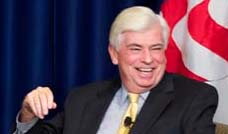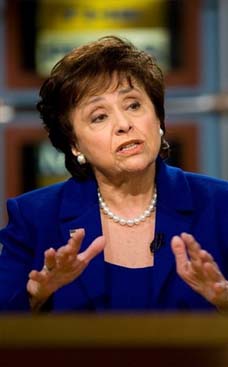
The greatest obstacle to accomplishing this goal was not the harsh working environment or the lack of supplies - innovation, ingenuity, and hard work overcame most barriers to achieving positive outcomes - it was my overseers that slowed progress to a crawl. Never, in the far reaches of my imagination, could I have foreseen that one day I would be teaching in a 5th-grade classroom and fighting the same battles with petty bureaucrats that I had fought 30 years before. Yet, here I am. And I am not alone. Teachers come to the classroom through one of two pathways. They either begin their careers as teachers (and remain teachers until their idealism wanes or they retire), or they enter the career after a professional life in another industry (or as former homemakers). For the record, either pathway is adequate for producing a "highly capable teacher." This term loosely defines a teacher's prowess at improving standardized test scores (the only current measure of teacher success in Seattle). Remember, a good teacher raises test scores; that's the measure of success. The District calls these teachers "Innovators" in the new labor contract and rewards them with extra pay. Whether test scores are truly an indicator of innovative teaching is another matter altogether. Beyond this narrow definition of a "good teacher" there exists another undefined and unmeasured realm of teaching practice. I call it the "Outsiders' Perspective." Individuals who have spent time prior to their teaching careers solving problems at for-profit (or non-profit) endeavors have usually acquired some faculty for making things work. Outsiders know what it is like to have a boss that hinders or helps them in the pursuit of their objectives. They know how to work around overseers who limit efficiency due to institutional inertia or incompetence. Here in Seattle, Outsiders are both revered and loathed by school administrators. Why? They achieve results outside the strict confines of administrative dogma.
Greg Parsley writes: As a young idealist in Liberia, the Peace Corps taught me much about the strategies necessary to navigate past government bureaucrats to get a job done
'Outsiders' who teach in Seattle fly under the radar to find success with kids
One teacher learned in the Peace Corps how to sidestep bureaucrats to get things done, and he says educators with the most unconventional career tracks often make the best innovators.
By Craig Parsley
Thirty years ago I was a Peace Corps volunteer drilling water wells in Liberia, West Africa. It was rough, dirty, sweaty work fraught with all the hazards and obstacles associated with operating dangerous machines in jungle environments. My overseers were generally low-level operatives working for USAID (and the CIA) or corrupt local politicians looking to maximize their status (or fill their pockets) through the successes of others.
As a young idealist, the Peace Corps taught me much about the strategies necessary to navigate past government bureaucrats to get a job done. My job was saving children's lives from the multitude of waterborne diseases prevalent in Africa.
The greatest obstacle to accomplishing this goal was not the harsh working environment or the lack of supplies - innovation, ingenuity, and hard work overcame most barriers to achieving positive outcomes - it was my overseers that slowed progress to a crawl.
Never, in the far reaches of my imagination, could I have foreseen that one day I would be teaching in a 5th-grade classroom and fighting the same battles with petty bureaucrats that I had fought 30 years before. Yet, here I am. And I am not alone.
Teachers come to the classroom through one of two pathways. They either begin their careers as teachers (and remain teachers until their idealism wanes or they retire), or they enter the career after a professional life in another industry (or as former homemakers).
For the record, either pathway is adequate for producing a "highly capable teacher." This term loosely defines a teacher's prowess at improving standardized test scores (the only current measure of teacher success in Seattle). Remember, a good teacher raises test scores; that's the measure of success. The District calls these teachers "Innovators" in the new labor contract and rewards them with extra pay. Whether test scores are truly an indicator of innovative teaching is another matter altogether.
Beyond this narrow definition of a "good teacher" there exists another undefined and unmeasured realm of teaching practice. I call it the "Outsiders' Perspective." Individuals who have spent time prior to their teaching careers solving problems at for-profit (or non-profit) endeavors have usually acquired some faculty for making things work. Outsiders know what it is like to have a boss that hinders or helps them in the pursuit of their objectives. They know how to work around overseers who limit efficiency due to institutional inertia or incompetence.
Here in Seattle, Outsiders are both revered and loathed by school administrators. Why? They achieve results outside the strict confines of administrative dogma.
Outsiders also fly under the radar to avoid detection, lest they be reprimanded for straying from the adopted curriculum. They develop all kinds of clever strategies to make it appear that they are teaching what they are supposed to, but in reality it's a smokescreen to protect their students from "cookie-cutter" curriculum. Though they are never in compliance with District directives, nobody ever bothers them because their students perform at high academic levels or demonstrate above standard growth. I am one such teacher.
At my school, Schmitz Park Elementary in West Seattle, we have a waiver to teach a math curriculum that the rest of the district does not use. It is called Singapore Math. When I was on the math textbook adoption committee several years ago, I introduced this curriculum as one of several possible choices. The committee, all of whom were carefully screened to ensure the chosen text would align with Administration objectives, resoundingly rejected it. (I got on the committee by flying under the radar.)
The textbook selection process was another sign of the continuing math wars going on nationwide. At the time, I told an engineer friend of mine (a parent also on the committee) that within three years the selected curriculum would be seen as a failure (that is now clear by the flat math scores across the district). I also told him that I would get the Singapore Math program instituted at our school before the new district curriculum was mandated.
The result could not have been more decisive. Last year's MSP exams (Measurements of Student Progress) put our 5th graders in the top position districtwide. I expected someone to call and congratulate us…chirp, chirp, chirp. Then I heard through reputable sources that our success was explained away as strong teachers in an easy demographic.
OK, I can accept the easy demographic argument a bit. After all, it is easier to teach a kid whose belly is full than one who is suffering kwashiorkor. It's the "strong teacher" thing that really galls me (and the fact that nobody mentioned our alternative math curriculum). If my work partner and I are strong teachers, then why doesn't the school administration ask us what we are doing that makes a difference for our students? How come nobody from Seattle Public Schools has come to observe our classrooms? Why haven't we been asked to mentor others?
My partner is another of those Outsiders. She ran a bakery counter for years. She worked early, often, and hard. She is efficient and very smart. She teaches kickboxing and aerobics. This woman is the Outsider's outsider, but an extraordinary teacher. Nobody called her either. Perhaps it's the curriculum. Our success hinges on the implementation of an internationally recognized math program. Singapore Math is a permanent fixture in our entire school because we were willing to fly under the radar until we could prove its success. Now we have a District-approved waiver, which came at the price of having to jump over mile-high barriers placed before us by overseers.
Schmitz Park also has seen success on recent science exams by rejecting the district's National Science Foundation curriculum and designing a program that aligns more closely with the state standards. Our case is not unusual; Outsider teachers all around the district have assisted students to make extraordinary gains in every academic area by designing their own materials or using curricula without the approval of the District. Many of these teachers come from military, industrial, commercial, or legal professions.
Rarely do you see their names or faces in the District's "School Beat" eNewsletter. The reason is twofold: The district cannot highlight the successes of teachers who tend toward non-conformity (that would run counter to the centralization efforts of the current superintendent); and these Outsider teachers want to maintain their stealthy identities. To be seen in Seattle Public Schools is to be scrutinized. And who wants to be scrutinized when you are breaking all the rules?
The recent decision by the Seattle School Board to recruit new college graduates from the Teach for America (TFA) pool is another example of the "more of the same will fix it" paradigm that has become the hallmark of Seattle Public Schools. TFA is the domestic equivalent of the Peace Corps, except that job descriptions are narrowed to those within the teaching field. Most teachers will tell you that there is little (if any) difference between a TFA recruit and a newly minted graduate from Western Washington University, save for the cost of their educations. In fact, the WWU teacher candidate will possess one year's training in his or her field to that of the TFA recruit with only five weeks of preparation.
There is nothing innovative about the Board's TFA decision. It may well be exactly the opposite of what the district should be doing to raise test scores and student achievement. Rather than hiring fresh TFA graduates from Ivy League schools, it is my contention that the strongest pool of teacher candidates should be drawn from those professionals seeking to enter the teaching profession as a second career.
Eighty percent of TFA recruits leave the field after two years in a classroom. Recruiting a 50-year old civil engineer to teach math in an economy short on engineering jobs is a better investment than hiring a short-term fresh graduate from Stanford that has an 8-in-10 chance of leaving the profession in two years. Oh … and to ensure that the engineer stays around once the economy turns, you had better pay her or him a living wage.













